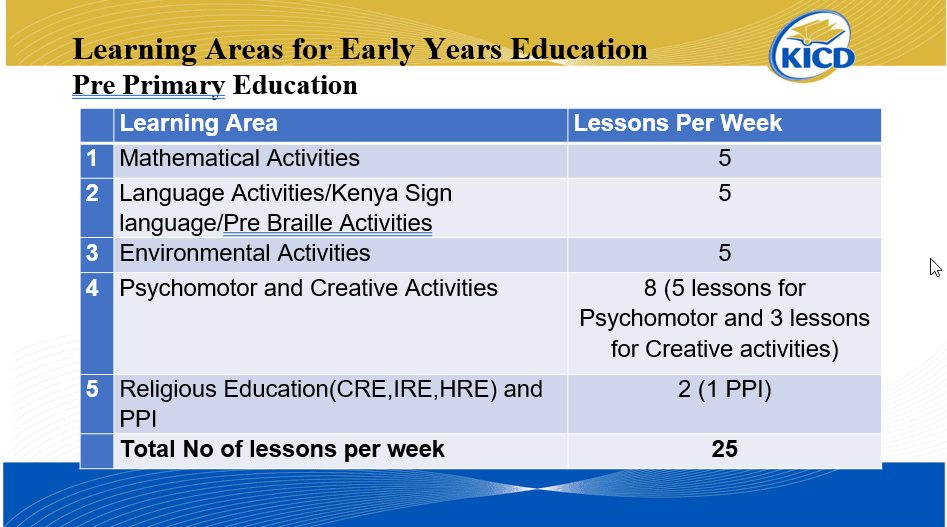Basic Scientific Skills Acquired Through Integrated Science
Questions Answers DOWNLOAD TUTORIAL WITH LEARNING ACTIVITIES RELATED POSTS

In the realm of early years education, a well-structured curriculum is essential for fostering holistic child development. The following outlines key learning areas for pre-primary education, as indicated in the recent guidelines from the Kenya Institute of Curriculum Development (KICD).

The structured approach to these learning areas ensures that children receive a balanced education that nurtures their cognitive, emotional, and social development. By incorporating a variety of activities, educators can cater to different learning styles and needs, ultimately preparing young learners for future academic success.
This curriculum reflects a commitment to creating an inclusive and comprehensive educational environment that supports the diverse needs of all children in Kenya.
Posted on by Elimu Assistant Team
Questions Answers DOWNLOAD TUTORIAL WITH LEARNING ACTIVITIES RELATED POSTS
Posted on by Elimu Assistant Team
Questions Answers Download Tutorial with activities Related Health Questions
Posted on by Elimu Assistant Team
Questions: Answers: Download Tutorial and Activities Related Integrated Science Posts
Posted on by Elimu Assistant Team
Questions Answers Download Tutorial and Activities Related Tutorials
Posted on by Elimu Assistant Team
Causes of Common Laboratory Accidents Answers to the Causes of Common Laboratory Accidents Download …
Posted on by Elimu Assistant Team
Introducing the Junior School English Curriculum Resource: The Ultimate Tool for Language Mastery Th…
Get in Touch!If you need any educational resources, feel free to reach out directly. I'm here to help!Name: Mr. Atika Email: nyamotima@yahoo.com Phone: 📞 0728 450 425Let’s empower your learning journey together!
Elimu Assistant
Access a wide range of academic resources, including KCSE past papers, mathematics, and chemistry materials to enhance your exam preparation. | WhatsApp! | Telegram! |
Elimuspace
Access a wealth of information, including job opportunities, news, and academic materials. Stay updated and connected with a community of followers. |Join Elimuspace Now!|